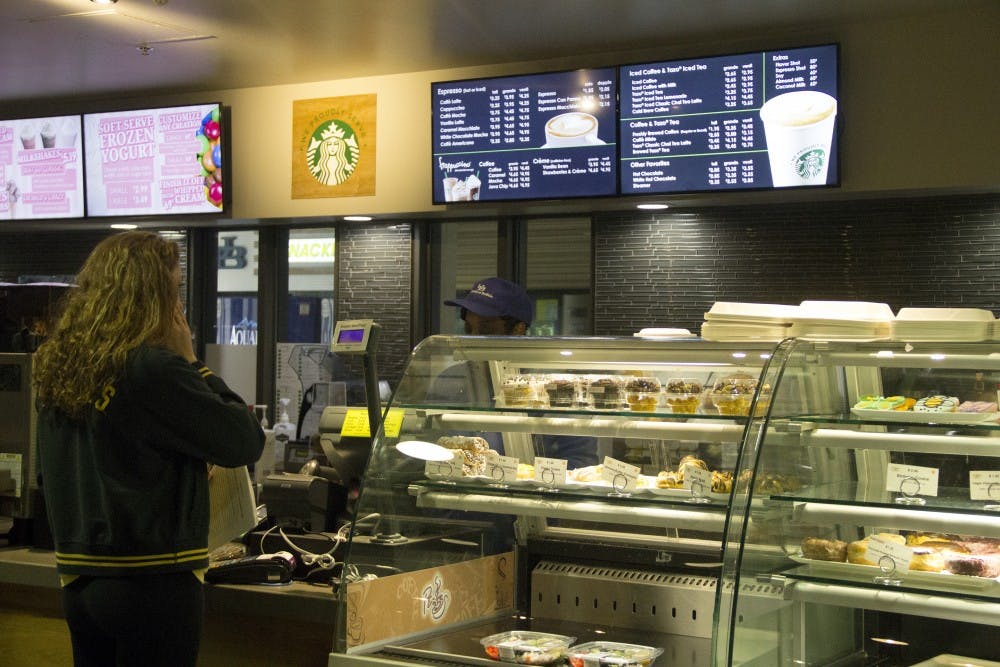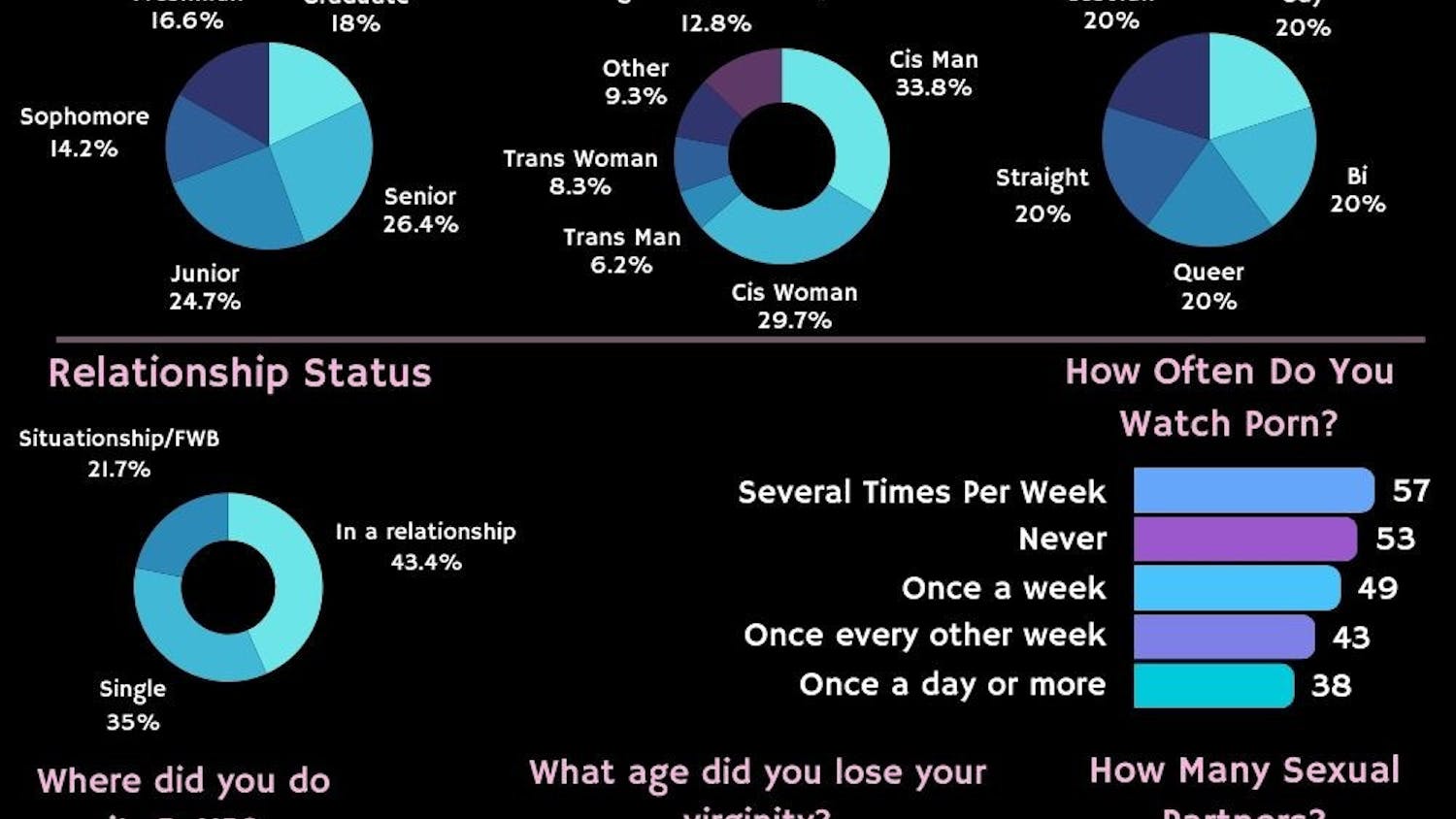The nonprofit organization overseeing dining at UB counts on students not to use all the meals they buy.
Budget officials at Campus Dining & Shops, which reported nearly $5 million in profits in 2015-16, say they can’t introduce a rollover or refund system for unused meals because the money students paid for the meals is reinvested.
UB requires students living on campus to spend close to $6,000 on meal plans their freshman year, but around 16 percent of the meal swipes they are required to buy will never be redeemed.
Money spent on missed meals isn’t refunded to students, and the meal swipes don’t roll over from week to week. Projected missed meal dollars are built into CDS’ annual budget, according to Raymond Kohl, marketing manager for CDS.
During the previous school year, the Student Association Assembly pushed for changes that SA officials said would cut down on missed meals, but CDS never implemented the proposal.
“The meal plan dollars that are brought in are critical to CDS’ forecasted revenue, which does not permit a projected rollover or refund system,” Kohl said. “Revenue is reinvested back into operations, food purchasing, equipment costs, debt service, infrastructure repairs and construction of new dining facilities.”
The Faculty Student Association, referred to as Campus Dining & Shops, is overseen by a board of students, faculty and UB administrators. Former UB administrators Dennis Black and Andrea Costantino pleaded guilty last fall to embezzling over $300,000 while overseeing the FSA.
Kohl denied The Spectrum’s request for the most recent CDS budget, and said the newspaper would have to file a freedom of information request for any further information about student meal plan revenue, citing “sensitive business information.” The Spectrum has filed such a request.
Elyssa Mountain, a senior international business major, said she often had four or five meal swipes left over during her freshman year when she had the 19 meal-per-week plan.
“I mean, it was absurd. I could never use all of them,” Mountain said. “I would try to get as many snacks or waters as I could, but I would usually have between four or five meals left over.”
Mountain would sometimes use two meal swipes when her meal exceeded the value of the swipe, which meant she sometimes used less than a dollar from the extra swipe, she said. Dinner and lunch meals are valued at $9.25 per swipe; breakfast at $4.75; and late-night at $5.50. Students can only swipe twice during a meal.
“Sometimes it was just like 50 cents over whatever the meal amount was, and I’d just use another meal swipe to cover the difference,” Mountain said.
Meal plans, while sometimes wasteful, can be helpful for freshman students to adjust, Mountain said.
“If you actually crunch the numbers, dining dollars end up being the best deal, but for a freshman I think it’s just easier to know you have a meal swipe, that you don’t have to worry about budgeting,” Mountain said. “I don’t know how much else the school can do. I think it comes down to students figuring out what works best for them.”
Unlike other SUNY schools that require all students living on campus to have meal plans, UB only requires freshmen to have a meal plan.
Freshmen who live on campus can choose between two packages. The first offers 14 meals per week, with $300 in dining dollars and three guest meal swipes, for $2,725 per semester. The other option is 19 meals per week, with $200 in dining dollars and three guest meal swipes, for $2,875 per semester. UB automatically assigns incoming freshmen with 19 meals per week with the option to change it to 14.
“This is to assure that new students are provided with at least two meals a day, and gives parents peace of mind that obtaining meals will not be their son or daughter’s top concern while navigating through their first year of college,” Kohl said. “After students’ freshman years, additional options are available.”
Kohl said CDS monitors meal-plan usage, but does not track how much of its budget is supported through mandatory student meal plans.
“We would need to know exactly what each student eats on a given day, and we don’t keep track of that information,” he said.
Joaniel Cardona, a freshman aerospace engineering major, said he sometimes is unable to spend between one and three meals a week, depending on his schedule. He said he tries to remember to use his meal swipes before they expire, but it is sometimes inevitable.
“It’s kind of weird how the system works. If you go home for a weekend, or say you leave on vacation, that’s a week of unspent meals,” Cardona said. “And even if you are here, a lot of the locations are closed. Maybe if there was a way to transfer the amount back to students, because there are also just some people [who] don’t eat that much.”
Students have tried in the past to improve the system. In fall 2016, the SA Assembly passed a resolution asking CDS to eliminate “meal-time gaps,” or times throughout the day when student meal swipes aren’t accepted. Students said the “arbitrary” time limits contributed to students not being able to use all the meals.
Kohl said the half-hour gaps permit “changeover for cash registers.”
Students can pay for their meals with their own money, or use dining dollars during the gaps and can use their meal plans at most times during the day, according to Kohl.
Matt Eichhorn, a junior computer science major, was on the CDS student advisory board when he proposed the elimination of meal gaps to the Assembly.
Eichhorn said CDS asked him to step down from the board, and CDS did not adopt SA’s proposal to eliminate the meal gaps.
“I think most of what they’re doing is good, and I know that speaking up makes it seem like the contrary, but most of what they’re providing is pretty reasonable,” Eichhorn said. “I think that just being more open to student input and more transparency would be in the best interest of both them and us.”
Sarah Crowley is the senior news editor and can be reached at sarah.crowley@ubspectrum.com and @crowleyspectrum.





